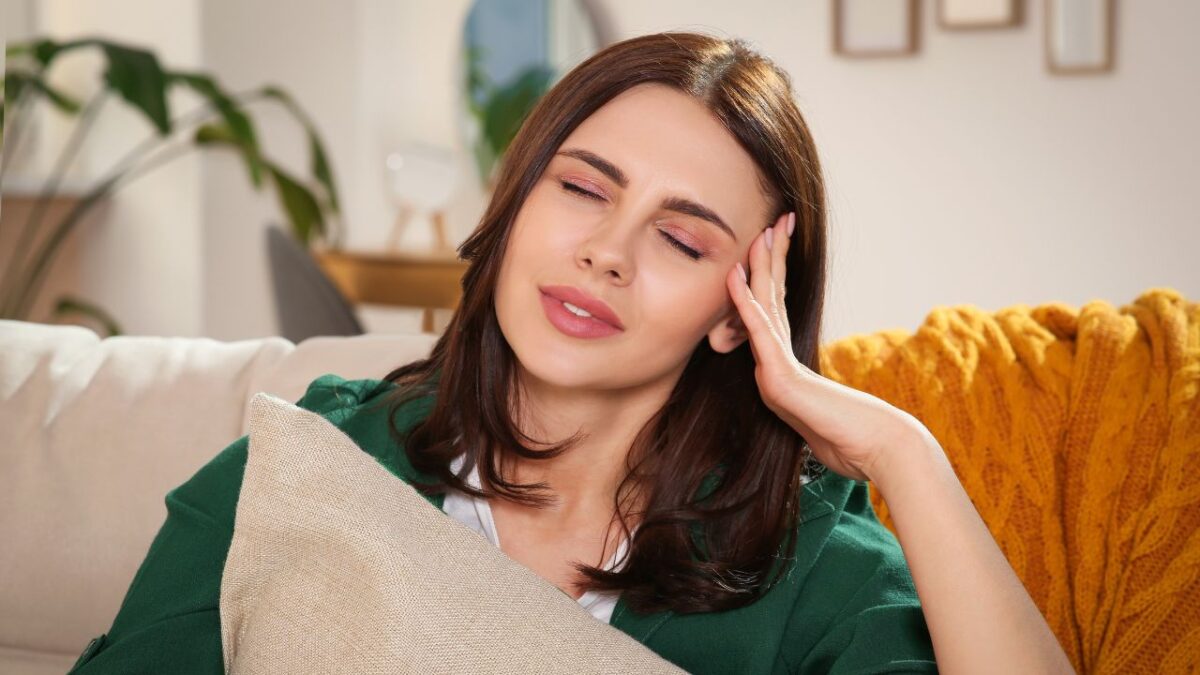Anxiety Out of Nowhere? It Might Be Perimenopause

Perimenopause is the 5–10 year phase leading up to menopause, marked by wildly fluctuating hormones. Estrogen, a key player in regulating mood, sleep, and stress, starts to behave like a roller coaster.
According to the Mayo Clinic (2022), estrogen directly influences serotonin and other neurotransmitters that stabilize mood. When estrogen drops, serotonin can too — opening the door for anxiety, irritability, and even panic attacks (Mayo Clinic Staff, 2022).
A 2020 study in Menopause, the journal of The North American Menopause Society (NAMS), found that women in perimenopause were nearly twice as likely to experience significant anxiety compared to women in premenopause (Santoro et al., 2020).
In short: It’s not “just stress” or “just aging.” It’s biology.
Signs Your Anxiety Could Be Hormonal
If you’re wondering whether your anxiety might be linked to perimenopause, watch for these clues:
- Sudden anxiety with no clear cause
- Panic attacks even if you’ve never had them before
- Increased sensitivity to stress
- Heart palpitations or a racing heartbeat
- Sleep issues like insomnia or night waking
- Irritability that feels disproportionate
If these sound familiar, your hormones might be whispering (or screaming) for attention.
Practical Solutions to Calm the Storm
The good news? You don’t have to just “wait it out.” There are real, research-backed ways to ease perimenopausal anxiety.
✅ Lifestyle Tweaks That Work
- Exercise: Regular aerobic activity can balance neurotransmitters and improve mood (Harvard Health Publishing, 2021).
- Sleep Hygiene: Go to bed and wake up at the same time daily — it anchors your body’s natural rhythms.
- Limit Alcohol and Caffeine: Both can worsen anxiety symptoms.
✅ Mind-Body Magic
- Mindfulness Meditation: A 2018 study published in JAMA Internal Medicine showed mindfulness reduces anxiety and stress dramatically (Goyal et al., 2018).
- Breathing Exercises: Simple 4-7-8 breathing can short-circuit anxiety in minutes.
✅ Talk to Your Doctor
- Hormone Replacement Therapy (HRT) or low-dose antidepressants are options if lifestyle changes aren’t enough. Always consult a healthcare provider who specializes in menopause care.
✅ Supplements to Consider
- Magnesium Glycinate: Known for promoting relaxation and sleep.
- Omega-3s: Found in fish oil, they have been linked to mood stabilization.
The Bottom Line
Perimenopause anxiety isn’t just “in your head” — it’s written in your hormones. Knowing the cause is powerful, and with the right tools, you can navigate this phase with resilience, grace, and a whole lot less stress.
Because honestly? You deserve to feel good at every stage of life.
References
- Goyal, M., Singh, S., Sibinga, E. M., Gould, N. F., Rowland-Seymour, A., Sharma, R., … & Haythornthwaite, J. A. (2018). Meditation programs for psychological stress and well-being: A systematic review and meta-analysis. JAMA Internal Medicine, 174(3), 357-368. https://doi.org/10.1001/jamainternmed.2013.13018
- Mayo Clinic Staff. (2022). Menopause. Mayo Clinic. https://www.mayoclinic.org/diseases-conditions/menopause/symptoms-causes/syc-20353397
- Santoro, N., Epperson, C. N., & Mathews, S. B. (2020). Menopausal Symptoms and Their Management. Endocrinology and Metabolism Clinics, 44(3), 573–591. https://doi.org/10.1016/j.ecl.2020.05.001
- Harvard Health Publishing. (2021). Exercising to relax. Harvard Health. https://www.health.harvard.edu/staying-healthy/exercising-to-relax
